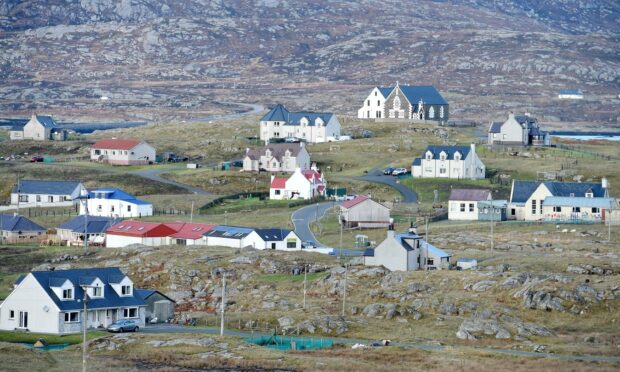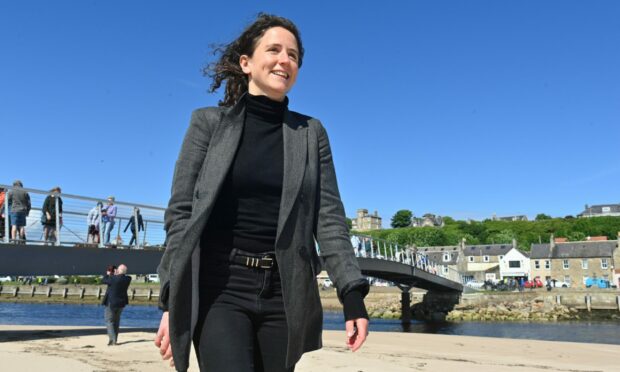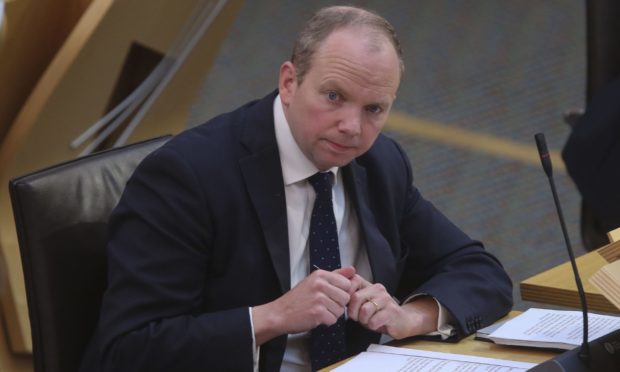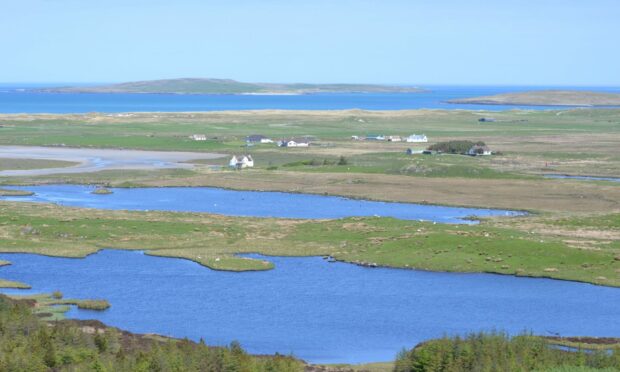SNP ministers have signalled they could rethink controversial plans to offer a £50,000 “bond” to keep young families in fragile island communities.
Islands Secretary Mairi Gougeon said the details of the policy were currently being “carefully considered” following “strong feedback” received in a recent consultation.
And she said soaring energy bills and the cost of living crisis had created a “new context” that must be assessed.
Council chiefs on the islands have told the government that the proposed £5 million investment would have little impact on stemming the tide of depopulation.
Many communities in rural areas face an existential threat as deaths outstrip births, while younger generations continue to move away in search of jobs and affordable homes.
Official statistics forecast the population of the Outer Hebrides could plummet by 16% by 2042, while a 14.8% drop is predicted in Argyll and Bute.
In the run up to last year’s Holyrood election, we exclusively revealed the SNP was pledging the £50,000 incentives in its manifesto.
Nicola Sturgeon’s party said 100 bonds would be targeted at islands where depopulation was projected.
The £5million scheme aimed to support people to buy homes, start businesses or other initiatives that would keep them in the area, or attract new residents.
A consultation was held last year, attracting almost 1,500 published responses.
‘Strong feedback’
In response to a recent parliamentary question, Ms Gougeon has now said: “The specifics of the Islands Bond are still being carefully considered in light of the strong feedback we have received from island residents, and within the new context of the current energy crisis and rising living costs which are being experienced by many islanders.”
Last night, a Scottish Government spokeswoman said: “Work is underway to publish the findings from the consultation and workshops that were held across the islands. The responses and analysis are being finalised and we will publish them in the coming weeks.
“As we do with all our consultations, we are giving due consideration to the feedback received and will set out our response alongside the publication of the consultation analysis.”
Donald Cameron, Scottish Conservative MSP for the Highlands and Islands, said: “Any support for our island communities is welcome but, as ever with the SNP, it is overdue and half-baked.
“They’ve neglected islanders for years with their ferry fiasco, a failure to roll-out their flagship R100 broadband programme, and miserably missing targets on their housing scheme.
“Islanders would be forgiven for being sceptical about this latest development given the sheer neglect they’ve endured from the SNP government.”
Consultation
While many welcomed the proposal during the consultation, key organisations said £5m was insufficient.
Argyll and Bute Council said: “Whilst the principle of the intervention is to be
welcome there is a real concern that the impact of the Bond will be so diluted that it will not make a meaningful difference to Argyll and Bute Council’s 23 inhabited
islands and the resulting challenges that they face in regard to population and
demographics.”
Similarly, the Scottish Crofting Federation said: “The initial view is that this is far too little, spread too thinly, to do anything meaningful.”
Orkney Islands Council said: “Making an island a viable and attractive place to live takes much more than financial incentives for one or two families to move there.”
Maggie Sandison, chief executive of Shetland Islands Council, said the concept of an intervention to stem depopulation was “welcome and appreciated”, but the idea would not solve the problem because the money would be “spread very thinly”.
Western Isles Council, meanwhile, warned of “a number of challenges which could be quite contentious”, including which islands would benefit, the value of the bonds and eligibility criteria.
Finlay MacLennan, from Community Land Outer Hebrides, feared the bonds could backfire on the housing market.
“While an Island Bond may provide capital assistance in purchasing a home on the open market, this may only exacerbate an already booming market while doing little to address the wider issues; a lack of affordable housing in rural communities and the commodification of croft land beyond it’s intended use leaving both property and land prices outwith the budgets of young local people,” he said.




Conversation